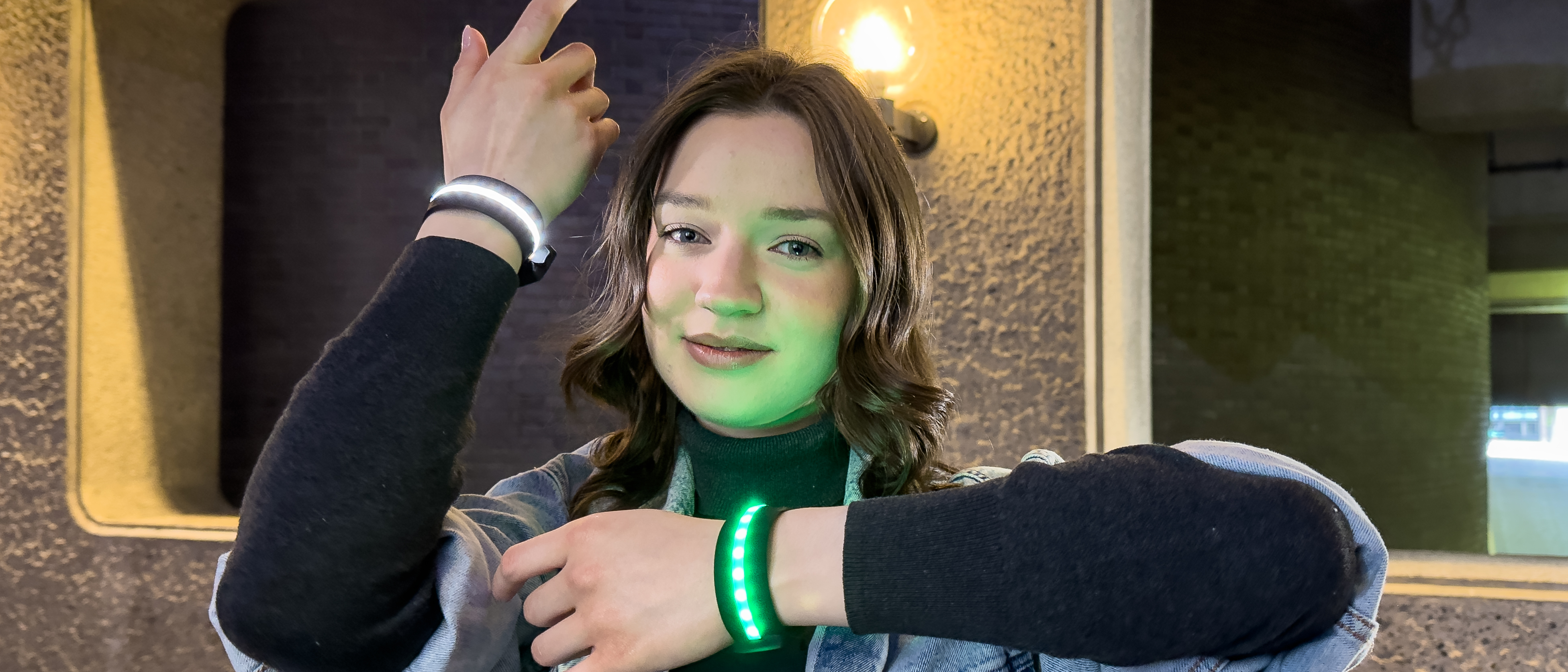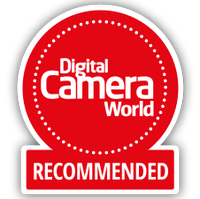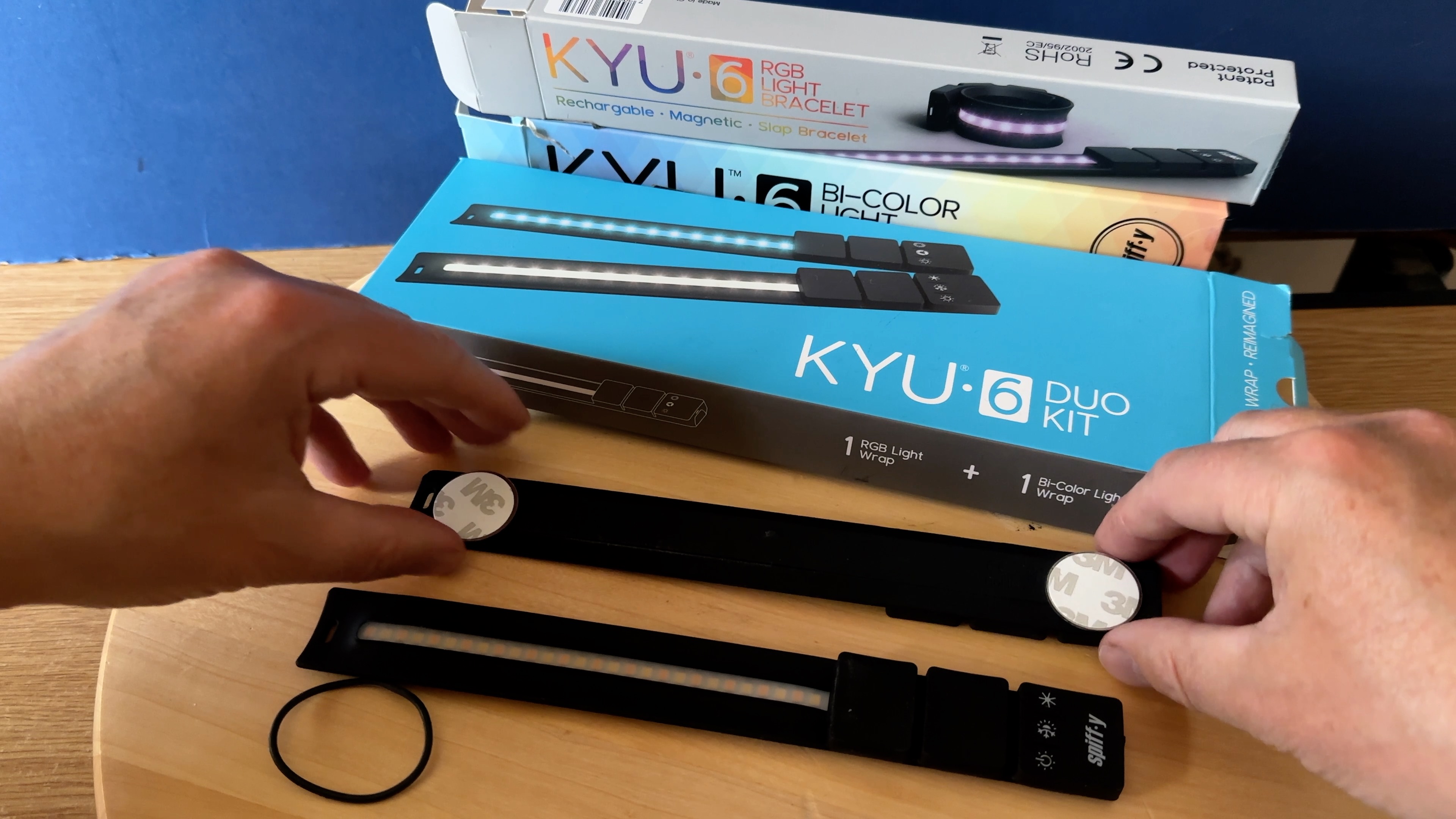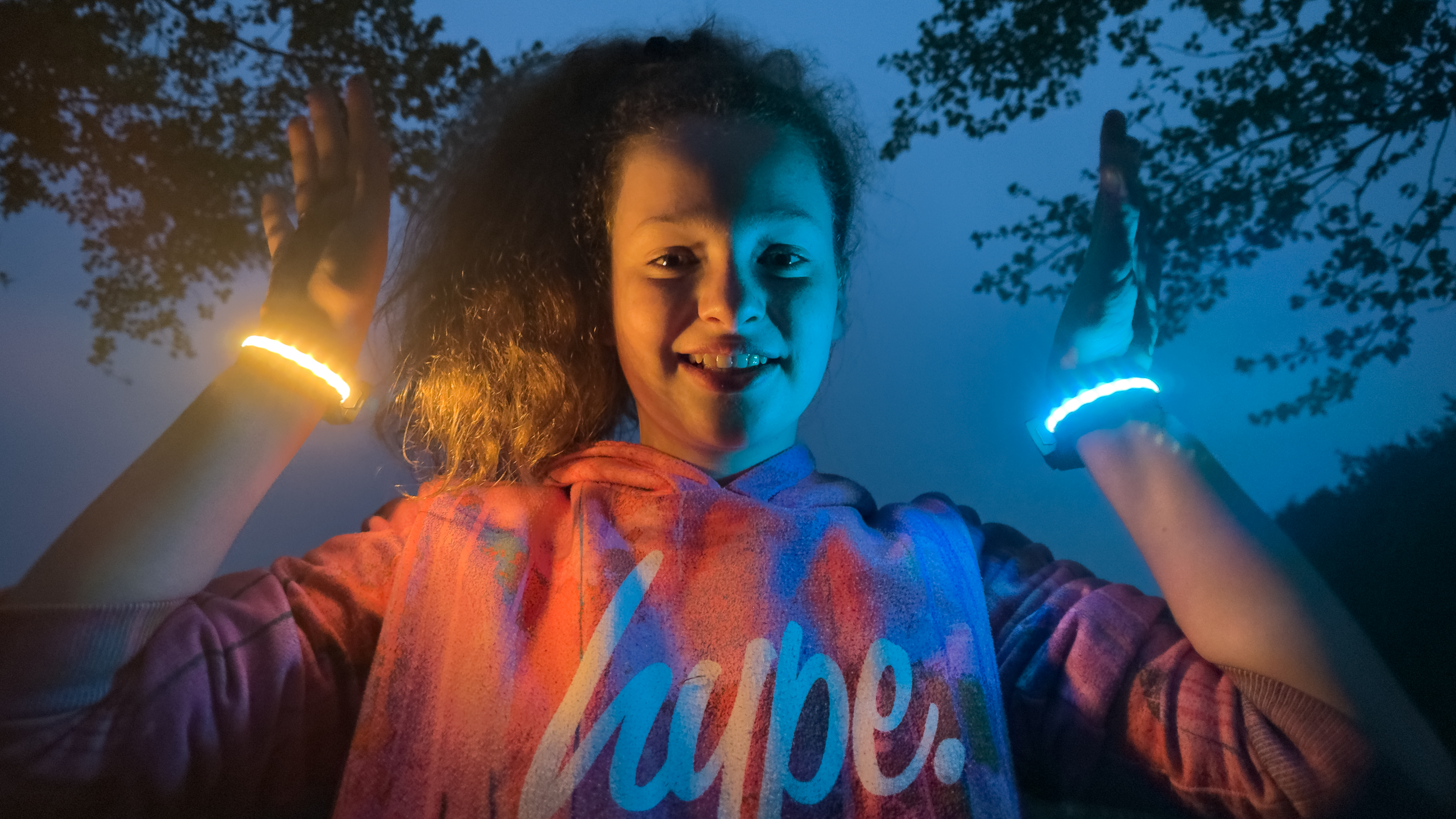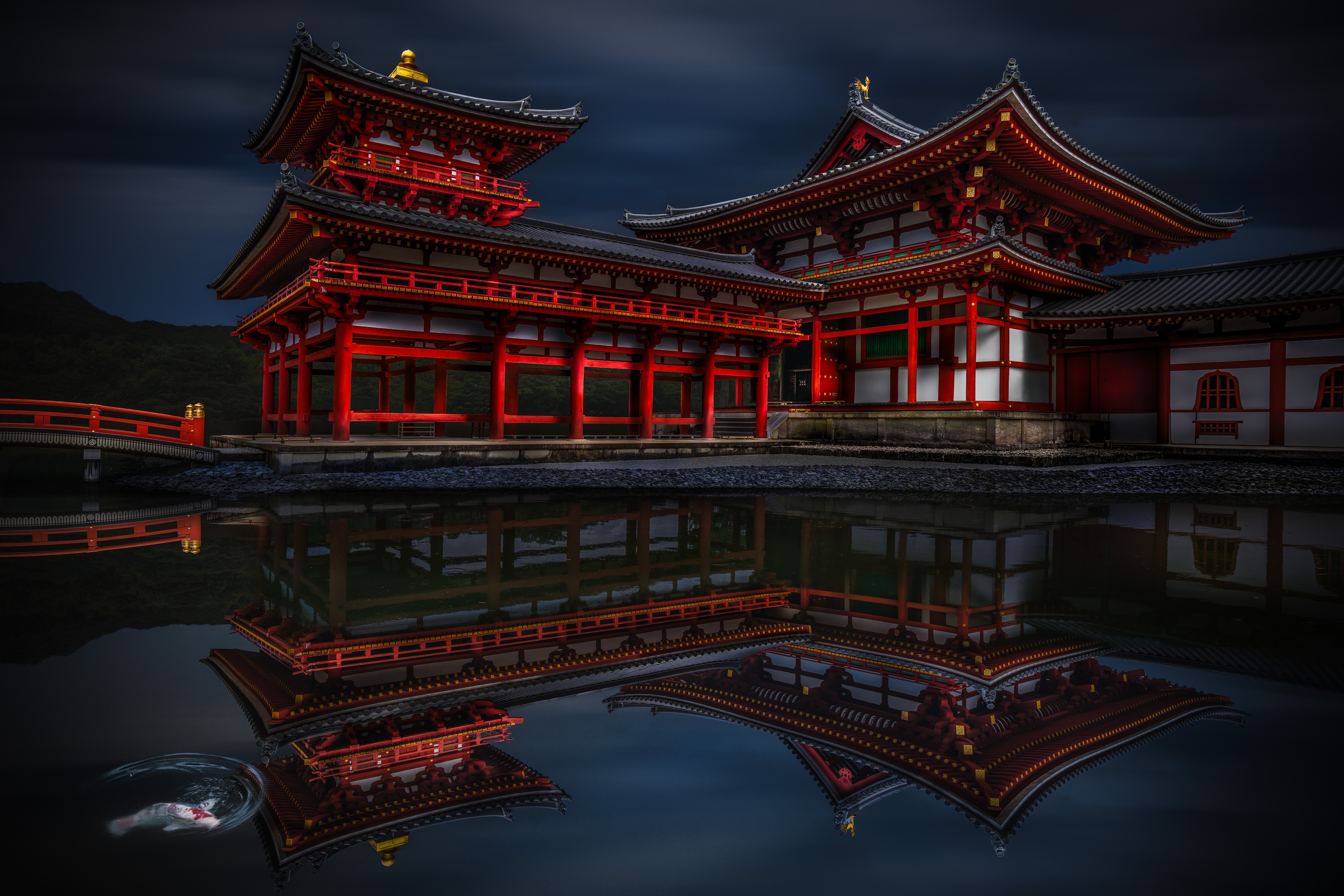Digital Camera World Verdict
For close-up lighting these LED lights are perfect, especially when deployed in their wearable bracelet form. The RGB bracelet’s vibrant neon colours encourage both model and photographer to get creative - such as painting with light using a slow shutter setting on your camera. The Bi-Color version lets you complement available light with a wide range of specific colour temperatures. If we were forced to choose one model it would be the RGB bracelet as it’s more colourful and inspires creative experimentation.
Pros
- +
Wearable
- +
Animated lighting presets
- +
Discrete size
- +
Animated effects
Cons
- -
Needs to be close to the subject
Why you can trust Digital Camera World
Made by Spiffy Gear, the Spekular KYU-6 Duo kit contains two small light LED bracelets - the RGB model and the Bi-Color model. You can buy each bracelet separately or in a two-pack. We got hold of the Duo-Kit for our review. At first glance, both bracelets look identical but they produce a range of different lighting effects (more on the differences later in this review.)
Each bracelet looks like a miniature LED light wand (or stick) due to its straight rectangular shape. However, when you tap a wand against your wrist it instantly transforms into bracelet form with a satisfying snap! This transformation from rigid wand to circular bracelet evokes scenes of movie superhero ‘suiting up’ with a CGI accessory and you’ll be powerless to resist showing off this feature before you’ve even powered up a light bracelet! You can snap both bracelets back to rigid LED wand form in a couple of clicks. Check out our supporting video to see the light bracelets in action.
Above: see the Spekular KYU-6 Duo kit in our video
Specifications
Color temperature: 2700K-6000K (on the Bi-Color Bracelet)
Dimensions: 23x2.5x1 cm
Brightness levels: 5
Special effects: 5
The best camera deals, reviews, product advice, and unmissable photography news, direct to your inbox!
Weight: 42g
Battery performance: Up to 8 hours (on low power), 1 hour on full power
Output: 200 lux at 0.3m
CRI: 95 (on the Bi-color model)
Key features
Let's talk about the unique functions that each bracelet possesses so that you can decide if you want them both or only need to buy a specific model. The Bi-Color Light Bracelet is designed to emit a range of colour temperatures, from 2700K-6000K. This will be useful to video makers or photographers who need to complement other light sources in a location. If your key light is the sun at midday then you can set the Bi-Color bracelet to a daylight compatible 5600K (by tapping the middle button at the base of the bracelet) and use it as a fill light. With a few taps of the middle button you can change the LEDs to emit a 2700K golden hour glow. The button on the right cycles through a series of animated lighting effects such as ‘Candle’ and ‘Stroboscopic’ which we’ll look at in more detail in the Performance section.
The RGB Light Bracelet has the same look and build as the Bi-Color model but boasts a more creative set of LED effects. Tapping the middle button at the base of the wand toggles the LEDS through 15 vibrant primary colours. The RGB wand’s animated effects are more creative than those produced by the Bi-Color wand. For example you can enhance a drama’s crime scene by setting the wand to ‘Police’ and bathe your actor in alternating red and blue flashes from an off-screen cop car’s light.
Build and handling
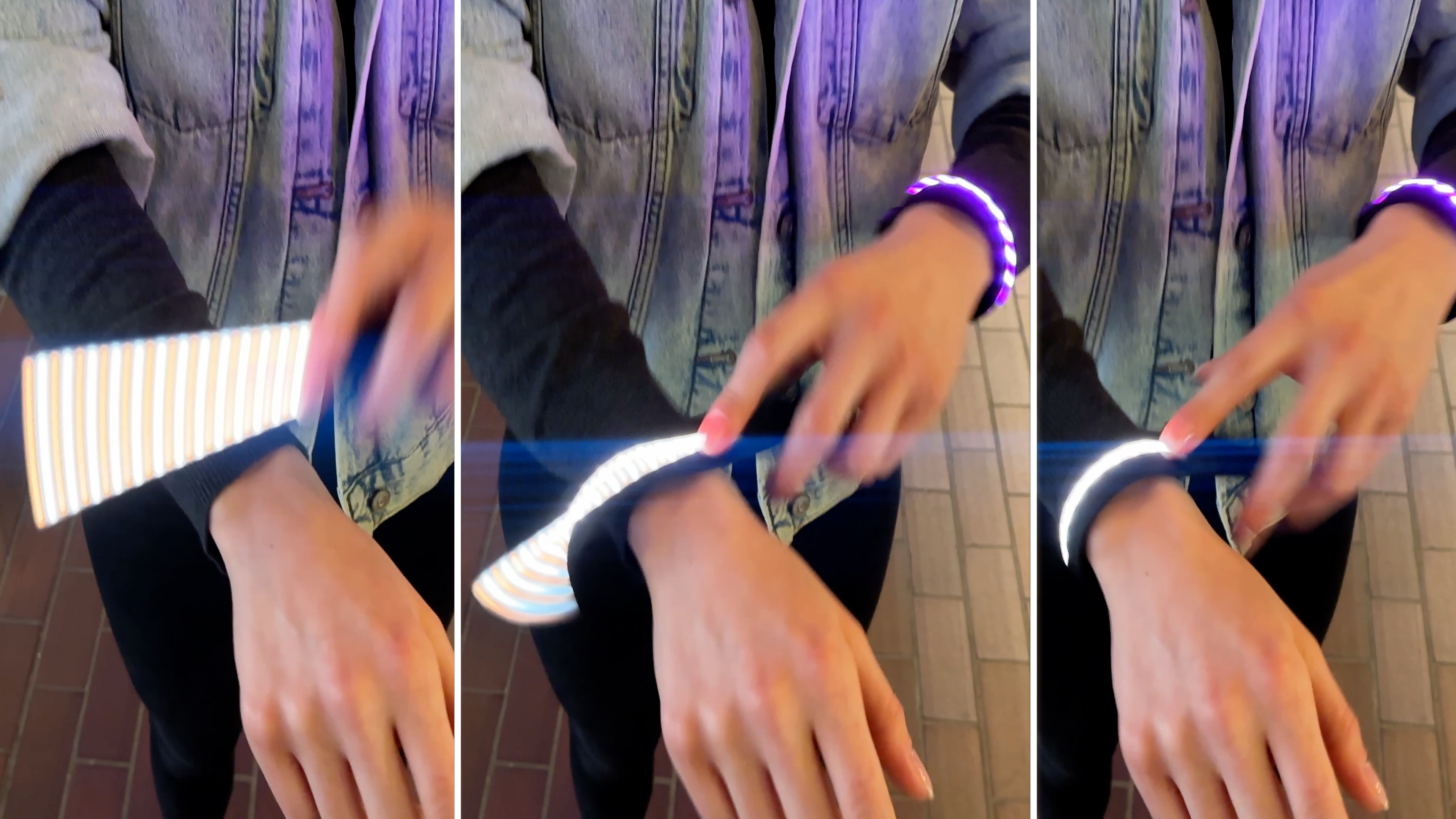
Both the RGB and the Bi-Color light wands are constructed from a non-slip water-resistant black rubber-like material. When you apply pressure to a straight wand it snaps into a circular bracket form. This gives you the option of using the devices as light wands to illuminate the subject of a video or photo shoot (though you’ll need to tap the left button at the base of the wand five times to set it to maximum brightness).
Each wand has three buttons at the base. The power button at the left doubles top as a brightness control. The middle button toggles through different colors (on the RGB model) and different color temperatures on the Bi-Color version. The right-hand button enables each bracelet to cycle through 5 animated preset effects.
When the bracelets are set to to their straight rigid form you can use two supplied magnetic discs to stick a light wand onto a metal surface near your subject. Alternatively you can deploy them in bracelet form as wearable accessories. This enables your actor or model to strike a pose with them or draw shapes in the air that you can capture as light streaks when using a slow shutter speed.
Performance
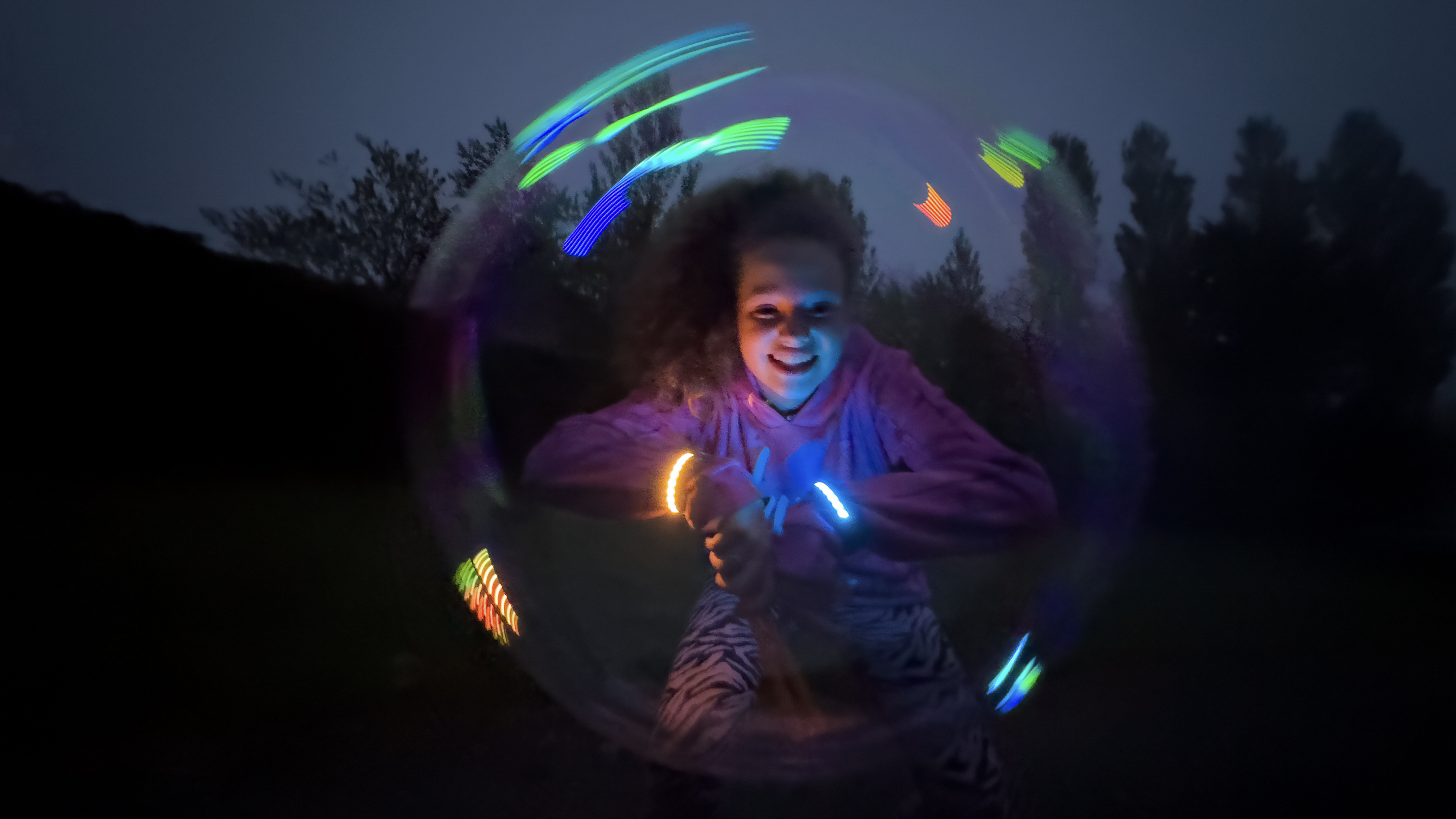
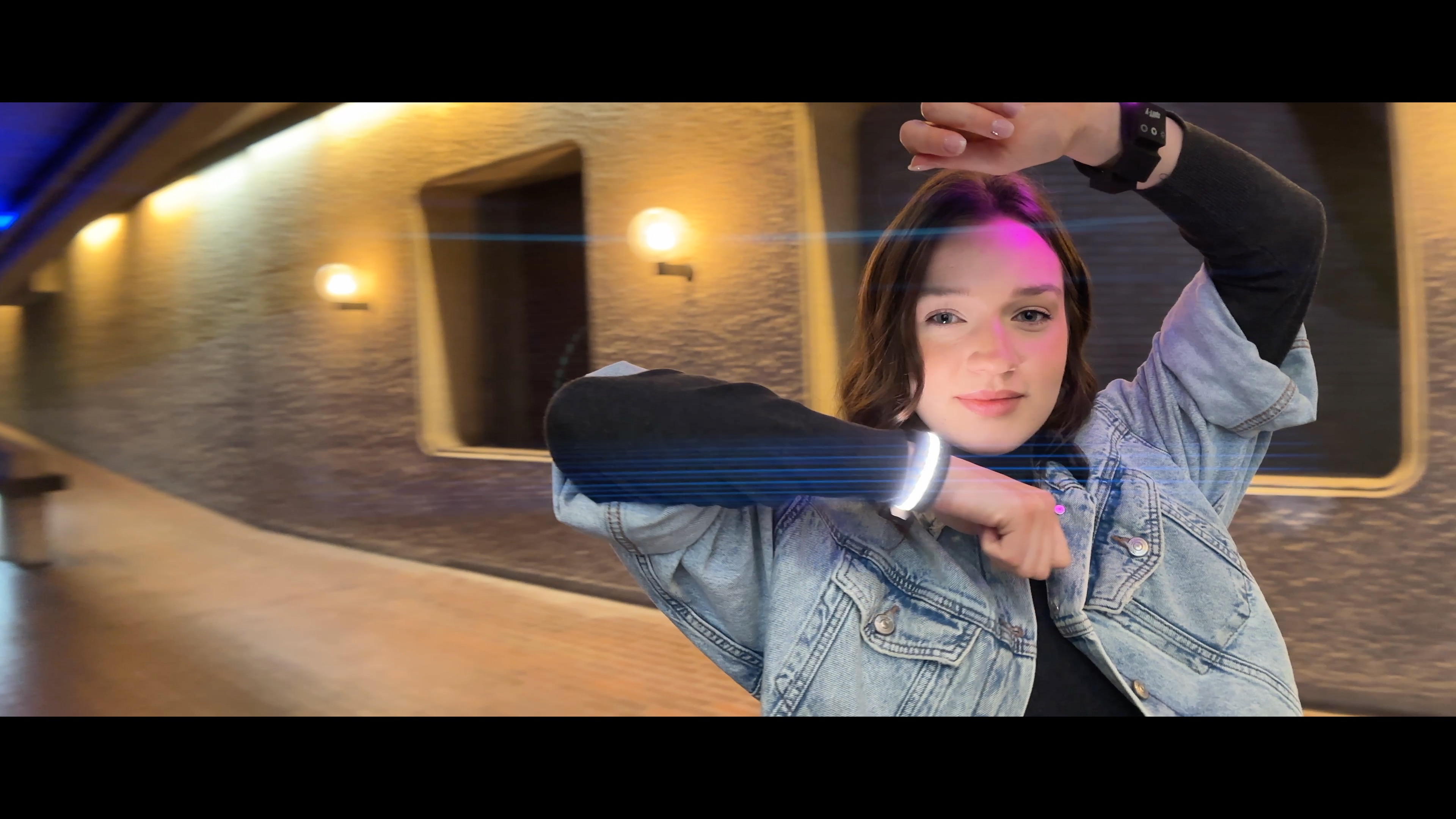
Spekular claims that the LEDs have a range of 15 feet. This might be the case in pitch darkness when the LEDs are set to maximum brightness but once other light sources are involved the bracelets work best in close proximity to their subjects. This makes the light bands more suitable when shooting intimate portraits (or close-ups in video productions) rather than distant wide shots. Given that the LED wands are designed to become bracelets they are indeed best suited to be part of the action rather than lighting the subject off camera. However if you’re a product photographer (or have a hobby such as toy photography) then these LEDs provide a versatile and creative way to illuminate small subjects.
The Bi-Color bracelet’s animated ‘Breathing’ effect slowly cycles through the entire colour temperature range of the bracelet while ‘Candle’ emits a random flicker of warm colour. This could be useful for adding atmosphere and character to a drama scene. The ‘Explosion’ effect simply turns the LEDs on and off, making it the least useful effect. ‘Red Carpet’ on the other hand effectively mimics the flashguns of paparazzi photographers and Stroboscopic ‘does what it says on the tin’.
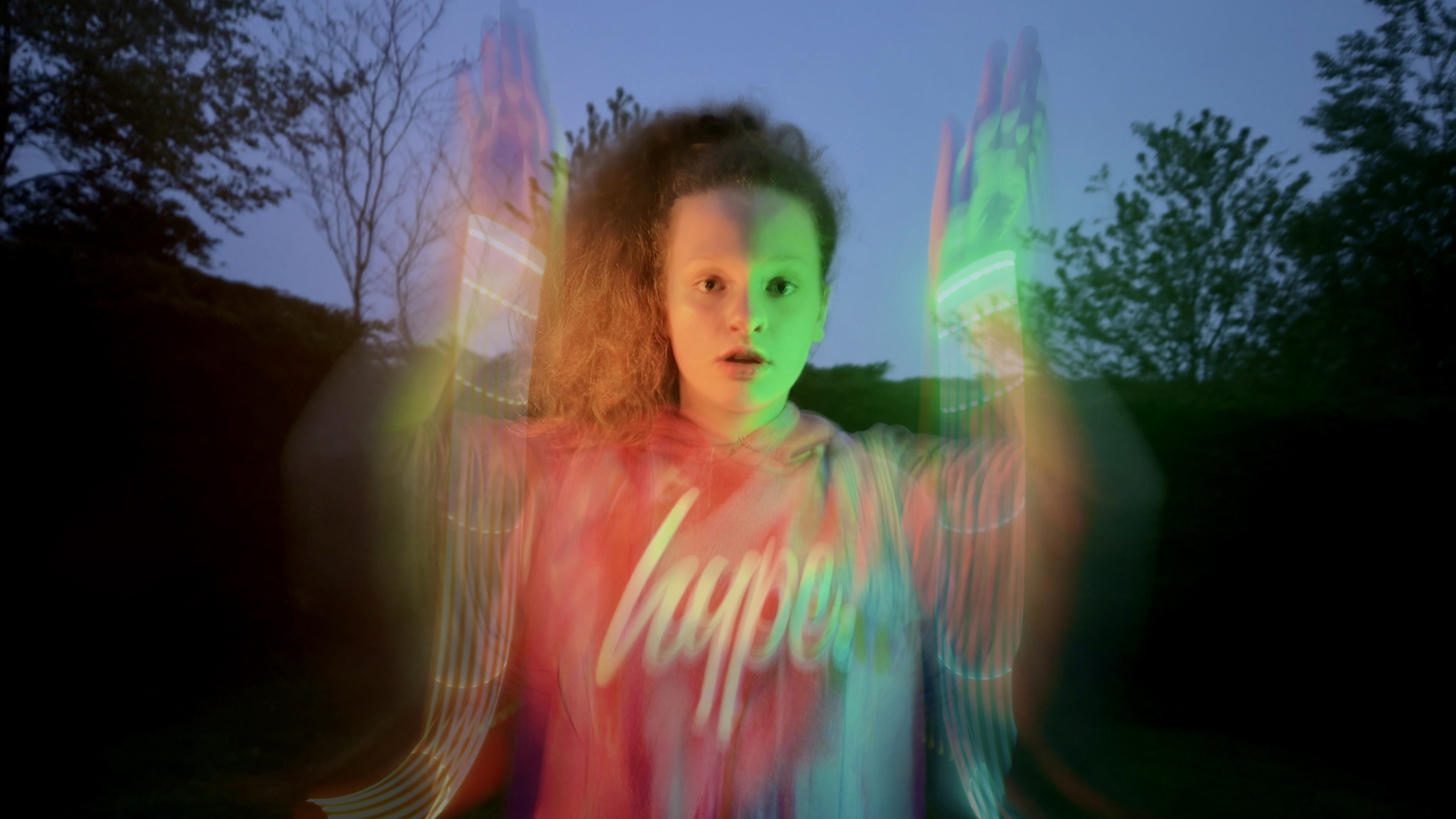
The RGB bracelet is better suited for creative lighting thanks to its ability to emit primary colours (rather than specific Kelvin values). These vibrant neon-like emissions make it perfect for slow-shutter light painting photography. As well as the fun police car lighting effect the RGB wand has a ‘Fire’ effect which does a similar job to the Bi-Color bracelet’s ‘Candle’ effect (though ‘Fire’ has a warmer glow to it.). You can also use the RGB wand to produce the flickering lights of a TV screen and burst of multi-coloured fireworks (which is far more effective than the Bi-Color’s puny ‘Explosion’ present.)
On our KYU-6 test shoot we used an iPhone 14 Pro Max. When shooting with an anamorphic 1.33 lens from ShiftCam’s LensUltra series we were impressed by the horizontal lens flares produced by the columns of LEDS on the bracelets. Both Light Bracelets are charged via a micro-USB port at the base and should last for 8 hours (though that will be around an hour if set to maximum brightness.) We never had a power shortage issue on either of our two test shoots (though we didn’t always have the wands set to maximum power). Check out our supporting video to see the light bracelets in action.
Competitors
The KYU-6 light bracelets feature in our Best light wands buying guide alongside another bendable LED - the Sirui Dragon B25R. The Dragon is much larger and more powerful than the KYU-6 bracelets and although it can bend and emit animated lighting effects it is certainly not wearable.
Verdict
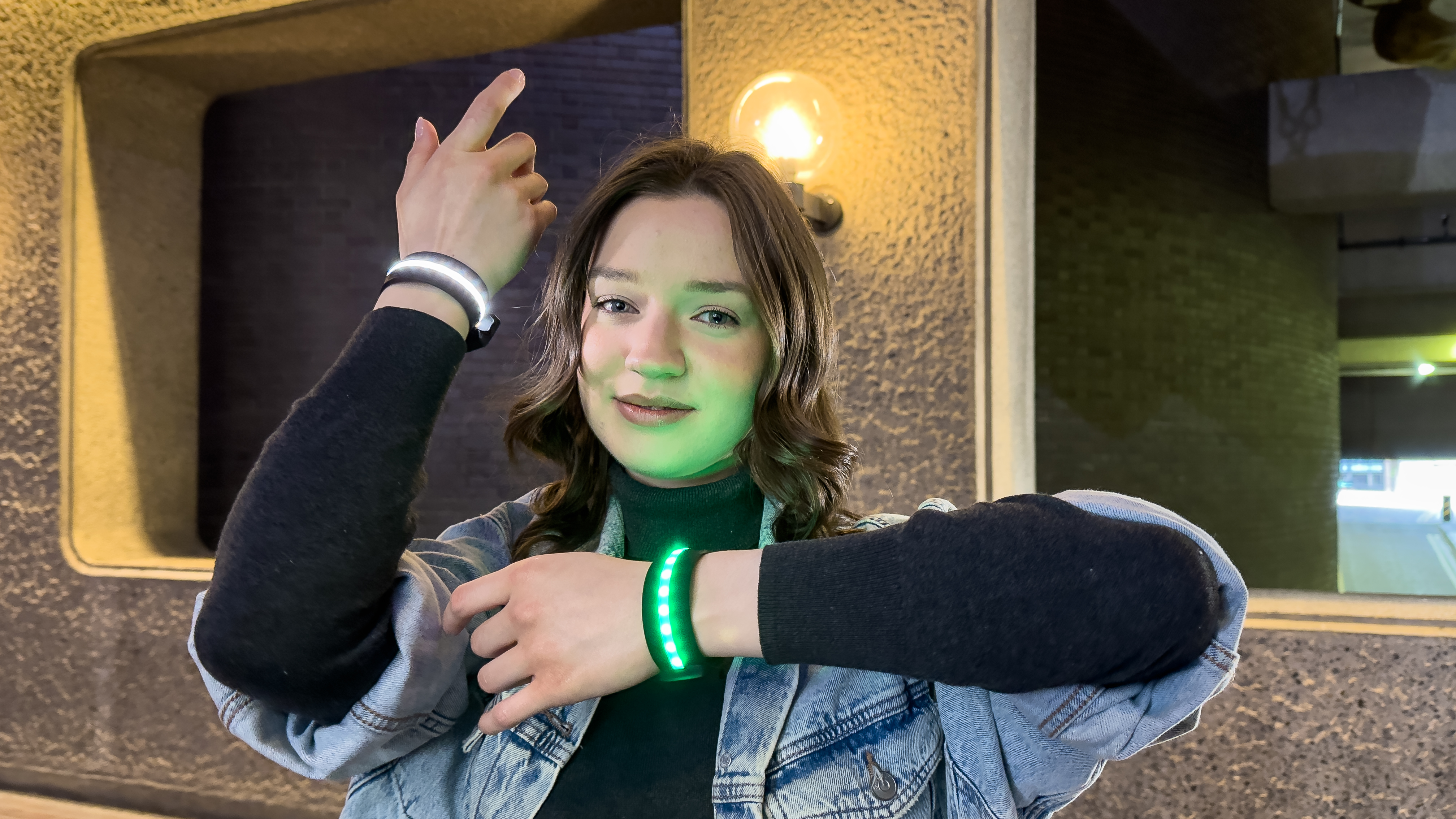
We loved testing these light wands, especially when they were deployed in bracelet form. As wearable LEDs, they encouraged our model to experiment with different poses. Even when shooting stills we set the LEDs to cycle through different colours so that our model was bathed in a range of colours throughout the shoot. We also enjoyed experimenting with light painting using slow shutter speeds and found that by setting the bracelets to their rigid light wand form they were very effective for lighting product photography. We’d recommend buying both lights in the Duo Kit so that you can choose between lighting a subject with the Bi-Color bracelet’s specific colour temperature range or getting more creative with the RGB wand’s vibrant primary colours and creative effects.
- The best LED light panels
- The best LED light sticks and light wands for photography
- Best TikTok lights: The best LED strip lights for creative videos
George has been freelancing as a photo fixing and creative tutorial writer since 2002, working for award winning titles such as Digital Camera, PhotoPlus, N-Photo and Practical Photoshop. He's expert in communicating the ins and outs of Photoshop and Lightroom, as well as producing video production tutorials on Final Cut Pro and iMovie for magazines such as iCreate and Mac Format. He also produces regular and exclusive Photoshop CC tutorials for his YouTube channel.
